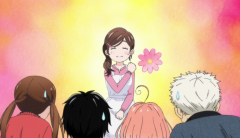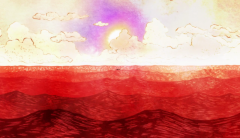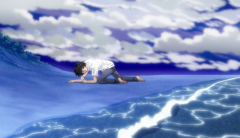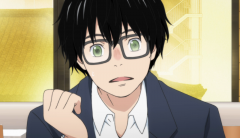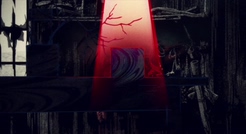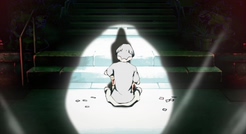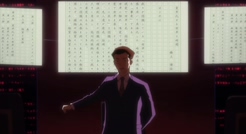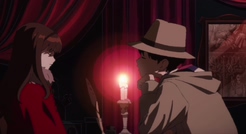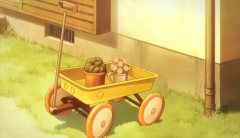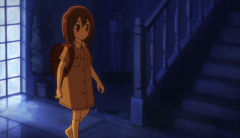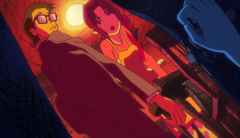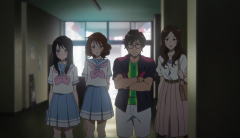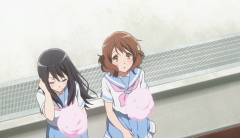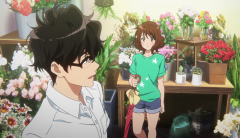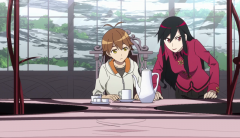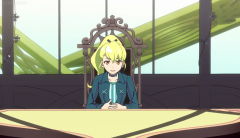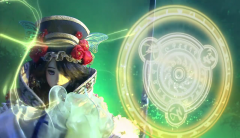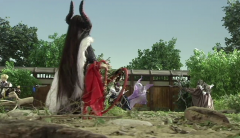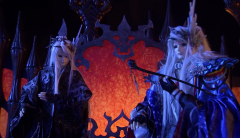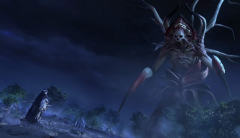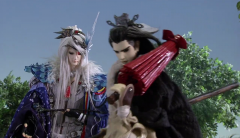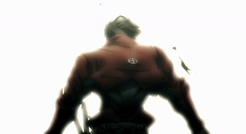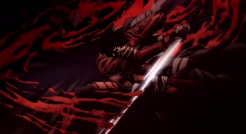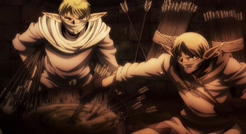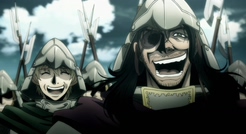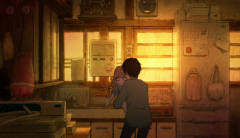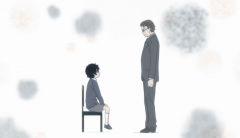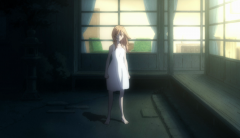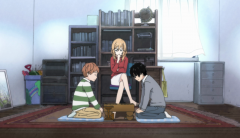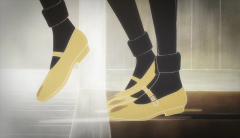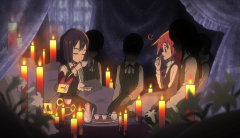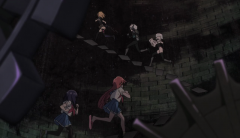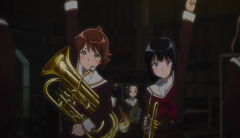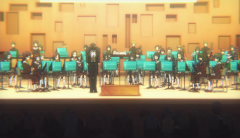Okay, I think I need to let this out first: What is that screenshot right at the end of preview chapter? I know some other mangaka draw this (Like Miura did in the first episode), but this image of big boob Akira is totally inappropriate with the show. This is a total disaster if you ask me.
This episode takes an unflinching look into the mind of Rei again, but unlike last week where the events were already happened in his past, this episode concentrates squarely on his inner thoughts: on how he perceives the world. The main strength of 3-gatsu no Lion has always been the way the show dig deep in Rei’s insecure self, and this episode really takes a step deeper and darker. While his past is certainly tragic and compelling, if the show relies too heavily on his past to draw sympathy from us, it won’t go anywhere because Rei doesn’t progress. Instead, this episode focuses on Rei’s attitude towards the past and how it affects him even now. Kyouko abusive voice again lingers in his heart, basically devalued his self-worth, but the sad thing is he’s submitted to it. He’s afraid that he doesn’t belong anywhere, this again reflects on his complicated relationship with shogi. Last week, we learned that he chose to play shogi not because he loved it, but because he wanted to spend more time with his father, and later as a ‘contract’ to get out of his trapped life; this week he sheds another light to it: he’s into shogi as a place where he feels himself belong to. But does he really feel belonging? As he continues to swim over countless waves to reach its destination, he begins to lose sights on the big world around, on his next stop. He reaches the island, he reaches his goals but now too afraid to make any more move. That is one hell of depressing thought.
The introduction of Touji Souya, a current meijin (one of the most prestigious title in shogi) serves as a great reference to Rei. The two of them share many things in similar: they are both become shogi professional shogi player when they were middle schools (the 4th and 5th people who do so), and their playing styles are strikingly similar as well. All those players who became professional in middle schools would all later become masters (including Souya), and that made Rei feel pressure towards those “achievements” that the shogi world expected of him (curiously enough when you realize his adoptive father never really give him that kind of pressure). His recent losing streak certainly brings him down and that again made him afraid whether or not he’s worth it. Well, that kind of pressure is not what he needs to care, but thankfully the teacher Hayashida was there to cheer him up. He, along with the three sisters, are the friends that Rei really need to bring him out of his depressions. I am really amazed that the show goes this far to bring out the dark inside Rei, we get to know him better and better now and he becomes one of the most fully realized characters that I’ve encountered in recent years. Thank you Chica Umino!
Speaking of her, I think I need to address on the comedy of this show. Many people complain that the comedy is the weakest part of the show, but for now I interpreted it differently. When you really think about it, for a quiet, slow coming-of-age story, voicing over the cats (and dogs) don’t really make much sense, but here it’s working. The thing is those light moments aren’t supposed to be humorous, or to get chuckles from us, but they serve as a cute, light-heart moments to balance out the dark, heavy inner Rei. There are some comic relief moments, sure, but their main objectives are to contrast with the lonely world of Rei, not for comedic effect; thus to judge it based on its poor ‘comedy’ doesn’t really ring true for me, because it isn’t strictly a comedy.
Lastly, this episode is a perfect example to dissect how well Shaft adapting this manga. When you really look at it, Shaft is one of the most unlikely studio to adapt this story. Of course Shaft is talented enough to bring the right pace and feel to the story, but being Shaft, sometimes they have to make somethings stand out. And stand out is the worst enemy for this kind of slice-of-slice show. With this episode, their marks are all over the place with varying degrees. When Shaft dwell into the mindscape of Rei, the visual language is easily the most striking 3-gatsu no Lion could ever have achieved. A small figure swimming in a dark red ocean, or the very next scene when Rei arrived in a blue island, are Shaft at their finest and those choices fit the theme perfectly. The close-up shots while in a conversation between characters and the head-tilts, on the other hand, are distracting the flow of the story and standing out too much and that were rather mediocre choice. All these cutesy moments are hit or miss at the moment: sometimes it works; sometimes not but I especially enjoy the sound designs of those sequences (like the part when Hina says something unintelligible “Zumomomo” and then run off). All in all, this episode got to be the darkest episode of 3-gatsu no Lion, as it never afraid to show the dark depressing side of Rei and for that I really appreciate it. Rei is a very flawed kid, but that’s exactly why he feels exactly like a human.

